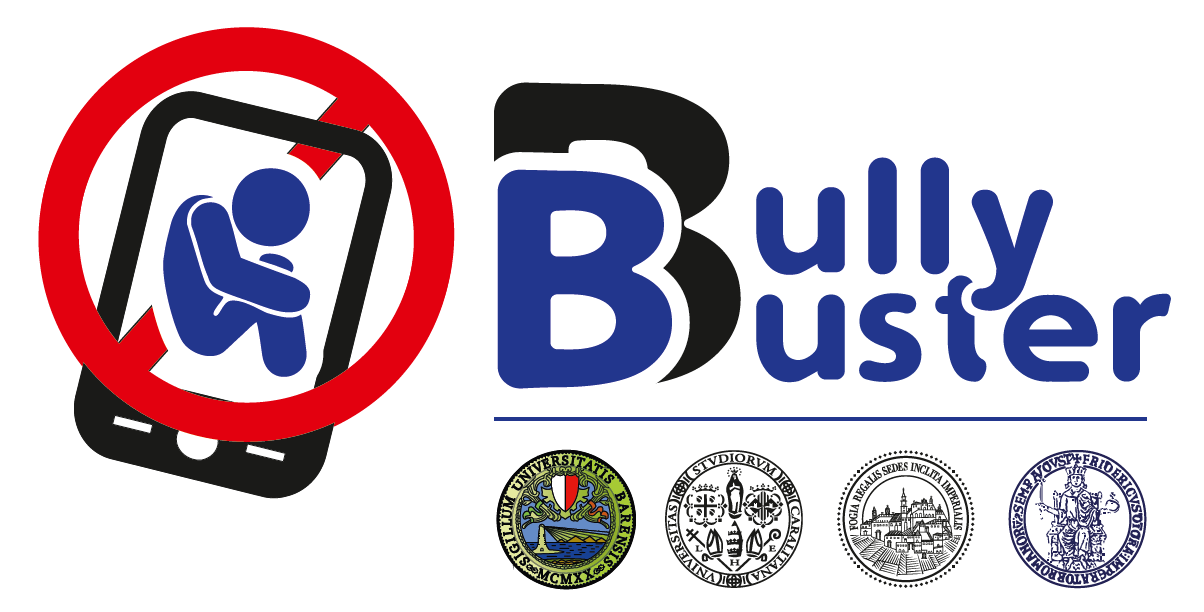Exhibitors 2021
- FASHION & WEARABLES
- INTERNET OF THINGS
- PRODUCT DESIGN
- 3D PRINTING
- 3D SCANNING
- ART
- ARTIFICIAL INTELLIGENCE
- BIOLOGY
- EDUCATION
- HACKS
- KIDS & EDUCATION
- OPEN SOURCE
- ROBOTICS
- MUSIC & SOUND
- ARTISANS & NEW CRAFT
- RECYCLING & UPCYCLING
- STEAM PUNK
- GAMES
- SCIENCE
- YOUNG MAKERS (< 18)
- FOOD & AGRICULTURE
- CIRCULAR ECONOMY
- AEROSPACE
- HOME AUTOMATION
- NEW MANUFACTURING
- STARTUP
- WELLNESS & HEALTHCARE
- ENERGY & SUSTAINABILITY
- FABRICATION
- INDUSTRIAL AUTOMATION
- RETROCOMPUTING
- DRONES
- CULTURAL HERITAGE
- VIRTUAL REALITY
BullyBuster - A framework for bullying and cyberbullying action detection by computer vision and artificial intelligence methods and algorithms
In 2019, as part of the call for projects of Relevant National Interest (PRIN), the Ministry of Education and Research (MIUR) financed the ambitious project entitled "BullyBuster - A framework for bullying and cyberbullying action detection by computer vision and artificial intelligence methods and algorithms �, presented by four RUs of the Academies of southern Italy (Naples� Federico II �, Bari, Cagliari, Foggia).
This is a proposal that - exploiting an integrated interdisciplinary approach of computer engineering, law and psychology - aims to contrast the actions of bullying and cyberbullying, the last great challenges of modernity.
More concretely, in this project, the various universities cooperate for the creation and development of software which, using artificial intelligence (AI) and computer vision techniques, makes it possible to identify and report violent behaviors committed by minors to the detriment of their peers.
This program will operate using different types of data obtained through technical specifications:
1) video-based analysis, for the segmentation of the scene through temporal and spatial structural descriptors, in order to detect specific bullying actions based on the movements of the crowd around the victim and, where possible, on his / her facial expression;
2) textual analysis, by detecting words and phrases typical of cyber harassment, oppression and stalking;
3) behavioral analysis by sensing keystroke dynamics and the emerging field of tactile analysis.
In order to correctly identify the symptomatic indicators (rectius: behaviors) of bullying and cyberbullying actions, the program will be calibrated on the basis of indications from legal and psychological studies, essential to ensure the effectiveness and effectiveness of the results obtained.
First of all, it will be necessary to reconstruct in detail the state of the art, i.e. the regulatory provisions that highlight the constitutive elements of the crime, to mark the boundaries between prevention and repression of criminogenic behaviors.
Secondly, against the background of the reference legislative framework, the software will be prepared considering the protocols and psychological models that generate typical bullying and cyberbullying actions.
After having structured the software on the basis of legal and psychological indications, it will flow into a mobile app called "BullyBuster" (Acchiappabulli) which will be installed - voluntarily and only after the parents of the minors involved have given informed consent - on electronic devices.
Once tested, the contributions deriving from the use of the software will be combined in a single application to be used for deterrent / repressive purposes (such as intelligent video surveillance systems) and preventive with detection systems of the user's emotional state and detection of dangerous actions or content (threatening phrases or counterfeit images or videos such as deep fake).
An investigation of this type will allow not only to operate on a theoretical level for the construction of effective algorithms for the identification of symptomatic behaviors of bullying and cyberbullying but also to make the tool concretely usable to prevent and combat the criminal phenomena in question and possibly support investigative and judicial actions using the evidence collected at the real or virtual crime scene.
Prof. Carlo SANSONE; Prof. Gian Luca MARCIALIS; Prof. Donato IMPEDOVO; Prof.ssa Donatella CURTOTTI
Prof. Carlo SANSONE, Professore Ordinario, Universit� degli Studi di Napoli Federico II;
Prof. Gian Luca MARCIALIS, Ricercatore Confermato, Universit� degli Studi di CAGLIARI;
Prof. Donato IMPEDOVO, Professore Associato, Universit� degli Studi di BARI ALDO MORO;
Prof.ssa Donatella CURTOTTI, Professore Ordinario, Universit� di Foggia




















































































